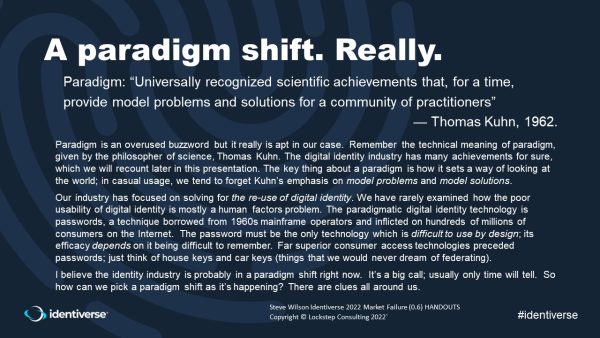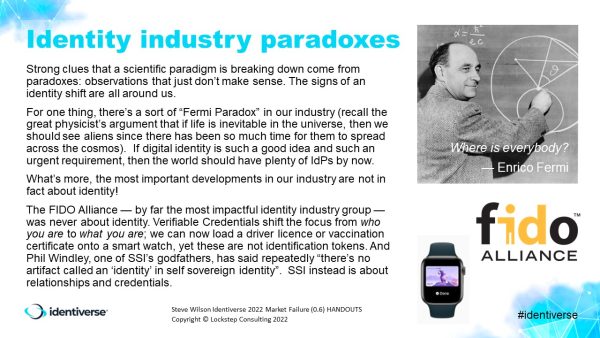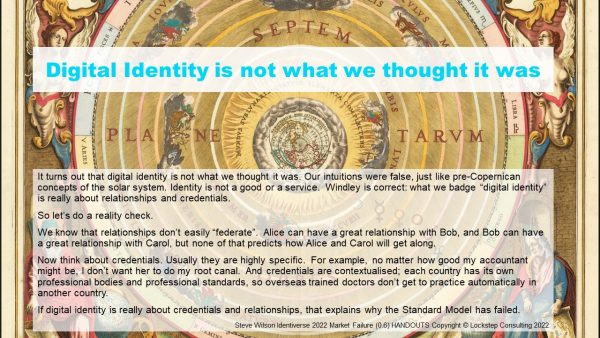What will we learn from the Market Failure of Digital Identity?
A presentation at Identiverse 2022.
Annotated slides
Steve Wilson Identiverse 2022 Market Failure (0.6) HANDOUTS
Abstract
A paradigm is a suite of “universally recognized achievements that for a time provide model problems and solutions for a community of practitioners”. We have all been working in a Digital Identity paradigm ever since the late great Kim Cameron published the Laws of Identity in 2005. Our industry’s achievements are many, including robust standards, cryptographically Verifiable Credentials, a body of knowledge and professional practices. And we have a widely accepted Standard Model of Identity, or architecture, in which Subjects, Identity Providers and Relying Parties (aka Holders, Issuers and Verifiers) hold, present, exchange, use and/or consume digital identities. The problem is this model remains mostly hypothetical. Decades ago, the United States, Canada, Britain and Australia decided to leave the free market to come up with digital identity services. Yet this simply has not happened, not in any way like the ecosystem envisaged by those government’s elaborate trust frameworks and the Laws of Identity. The uncomfortable truth is that digital trust has been a market failure, but the good news is we are primed for a true paradigm shift, where the standard model is overturned, the identity problem reframed, and our digital tools and practices re-purposed.



